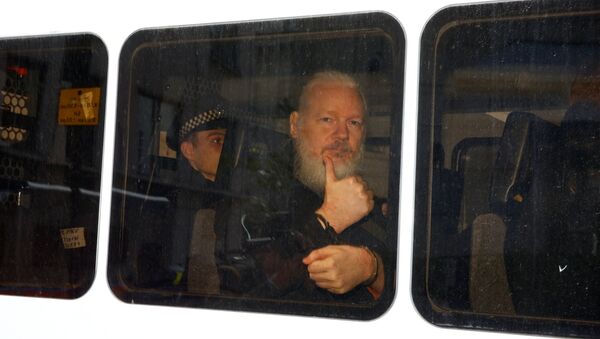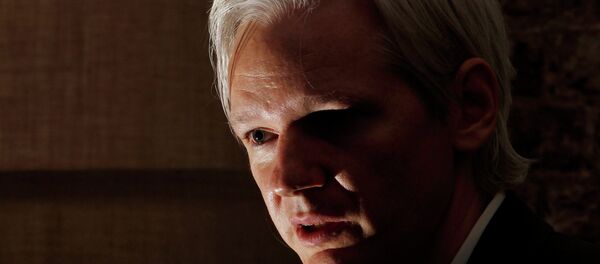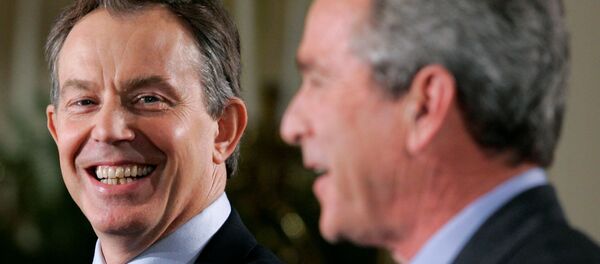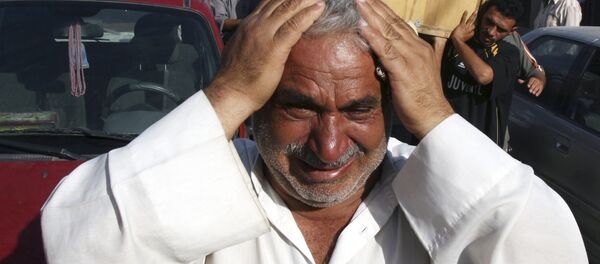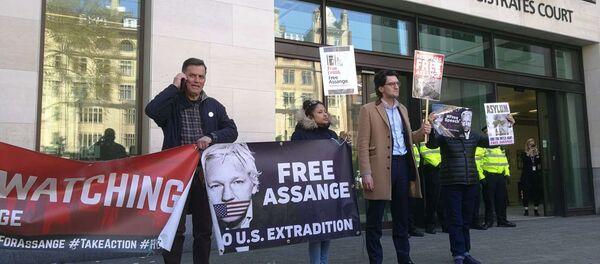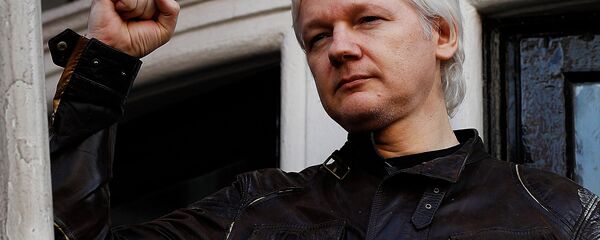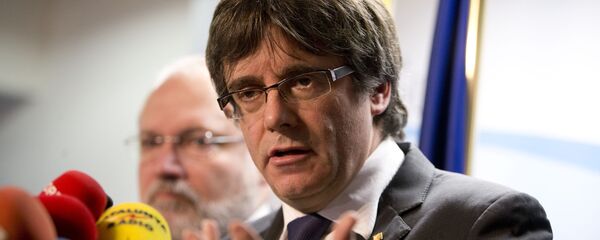Julian Assange was born Julian Paul Hawkins 3rd July 1971 in Townsville, Queensland, to Christine Ann Hawkins a visual artist, and John Shipton, an anti-war activist and labourer. The couple separated prior to his birth, and around a year later Christine married actor Richard Brett Assange — Julian took Richard's surname, and has referred to him as his father ever since (although Christine and Richard divorced in 1979).
His childhood was somewhat nomadic — in addition to having lived in over 30 Australian towns by his mid-teens, he also attended almost 40 schools. One constant feature of his adolescence, however, was a love for computers, kickstarted when his mother bought him a Commodore 64 at the age of 16.
The passion would quickly evolve into a zeal for hacking — before the year was over, he'd begun infiltrating computer servers under the pseudonym ‘Mendax'. Along with two other hackers — ‘Trax' and ‘Prime Suspect' — he launched a hacking group, ‘International Subversives', and the trio carried out a number of cyberattacks. Some have alleged the group was involved in the 1989 ‘WANK' (Worms Against Nuclear Killers) hack of NASA, a claim that's never been verified.
In the meantime, he put his software and programming skills to benign ends, giving technical advice to the Victoria Police Child Exploitation Unit and assisting with prosecutions, and helping establish one of the first public Internet service providers in Australia, Suburbia Public Access Network, among other innovative public services.
Despite such efforts, Assange's anti-establishment streak never waned, and in 1999 he registered the domain ‘leaks.org' — in his own words "didn't do anything with it", but in August that year he did publicise a patent for voice-data harvesting technology granted to the US National Security Agency.
"This patent should worry people. Everyone's overseas phone calls are or may soon be tapped, transcribed and archived in the bowels of an unaccountable foreign spy agency," he said at the time.
Exposing the abuse of technology by governments to spy on citizens, and the publication of sensitive documents, would of course become the defining feature of Assange's life.
First VIDEO of Julian #Assange removed from Ecuadorian embassy https://t.co/0bmAaF9h2s pic.twitter.com/ng5jqUrJma
— Sputnik (@SputnikInt) April 11, 2019
The Saga Begins
After months of planning, in October 2006 the ‘wikileaks.org' domain name was registered. It's unknown precisely who assisted Assange in the endeavour — this veil of secrecy endures today, the only individuals ever openly associated with the initiative other than Assange being Sarah Harrison, Kristinn Hrafnsson, Joseph Farrell and Gavin MacFadyen (now deceased).
The organisation stated its objective was "to bring important news and information to the public" by "[publishing] original source material alongside our news stories so readers and historians alike can see evidence of the truth".
It published its first document in December that year — titled "secret decision", it was apparently written by Sheikh Hassan Dahir Aweys, a Somali rebel leader for the Islamic Courts Union, and called for the execution of government officials by hiring "criminals" as hit men. It'd come into WikiLeaks possession after passing through the ‘Tor' network to China.
It wouldn't take long for the volume and quality of documents released by WikiLeaks to increase exponentially — and for major media outlets to take notice of the site's groundbreaking activities. By the start of 2010, the organisation had released a copy of the protocols governing US Army activities at Guantanamo Bay (revealing some prisoners were off-limits to Red Cross investigators, which Washington had previously denied), documents exposing illegal activities at the Cayman Islands branch of Swiss Bank Julius Baer, the secret 'bibles' of Scientology, the contents of Sarah Palin's email account, the membership list of the controversial British National Party, telephone recordings of Peruvian politicians and businessmen involved in a major national oil scandal, internal British security service guidance on avoiding freedom of information requests, and much, much more.
The video caused worldwide controversy, and elevated WikiLeaks and its figurehead to global repute — or indeed, infamy. Such was Assange's mainstream credibility, he entered an agreement with five major newspapers — El País, Le Monde, Der Spiegel, The Guardian, and The New York Times — to sporadically publish 251,287 confidential diplomatic cables dated 28th December 1966 — 28th February 2010.
Still, while the year would be defining for WikiLeaks, it also laid the foundations for Assange's eventual arrest in London 11th April 2019, and potential extradition to the US.
Cold Feet
In August that year, Assange visited Sweden. Not long after arrival, he had separate sexual encounters with two women — on the 20th, they jointly attended a local police station to raise concerns about their experiences. They didn't allege rape, or seek to bring charges against Assange, but wished to locate the WikiLeaks founder so he could be tested for sexually transmitted diseases.
Officers took statements, but made clear Assange couldn't be legally compelled to take such a test — nonetheless, later that day the duty prosecutor ordered Assange to be arrested on suspicion of rape and molestation.
"I don't think there is reason to suspect he has committed rape," she said.
The rape investigation was duly discontinued at Finne's request on the 25th — but two days later Claes Borgstrom, the lawyer representing the two women, requested a review of the prosecutor's decision, and on 1st September Director of Public Prosecutions Marianne Ny resumed the investigation. With the permission of Swedish authorities, Assange left Sweden 27th September for Britain — on 18th November 2010 however, Ny ordered Assange's detention on suspicion of rape, sexual molestation and unlawful coercion, and issued a European Arrest Warrant to facilitate his return to Sweden.
In February 2011, an English court upheld Sweden's extradition request, which Assange unsuccessfully appealed. Numerous subsequent attempts to overturn the decision were rejected, leaving Assange in legal limbo, remaining on conditional bail in the UK and facing potentially forcible extradition to Sweden at any given moment.
Out of desperation, on 19th June 2012 Assange sought refuge at the Ecuadorian Embassy in London, being granted full asylum by the government of Ecuador 16th August. The embassy would become his adopted home for the next 2,487 days — a state of affairs the Office of the United Nations High Commissioner for Human Rights deemed to be effective arbitrary detention in April 2016.
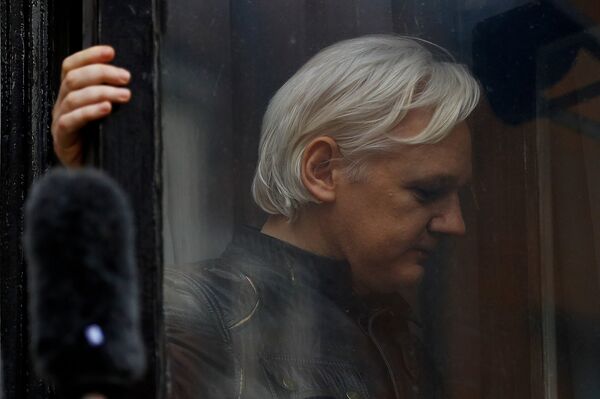
"Don't you dare get cold feet!" one CPS lawyer cautioned.
READ MORE: Clockwatching: Timeline of Assange's 2,487 Days in Ecuador's Embassy in London
Assange was eventually interviewed via video link 14th November 2016 by Ny and Swedish police and prosecutors — on 19th May 2017 Stockholm dropped the investigation and revoked the international arrest warrant.
While Assange and his supporters celebrated the development, it was a pyrrhic victory — British authorities remained committed to arresting the WikiLeaks founder for breaching his bail conditions back in 2012. Certain his arrest would ultimately result in his extradition to the US, Assange remained an effective prisoner in the embassy.
Making Trouble
During his extended stay at the diplomatic headquarters, Assange's access to the outside world was severely truncated — save for a few appearances on the embassy's balcony, when he would address supporters and journalists following certain developments, fresh air and daylight were largely off limits to the WikiLeaks founder.
Nonetheless, WikiLeaks remained thoroughly active, continuing to publish classified documents. Perhaps most notoriously, in July 2016 WikiLeaks exposed emails and other documents drawn from the Democratic National Committee's servers. The communications revealed Hillary Clinton had endeavoured to sabotage Bernie Sanders' Presidential campaign, and manipulated debates by dictating the questions she and other candidates would be asked by official moderators. Moreover, in March 2017 the site began releasing a series of files under the auspices of ‘Vault 7', which revealed the vast arsenal of hacking and surveillance tools employed by the CIA and NSA, and the agencies' infiltration of almost all electronic devices, ranging from cars to smartphones to web browsers.
This would end on 28th March 2018, when Ecuador revoked all of Assange's internet access at the embassy, on the basis his social media activity had "put at risk" Ecuador's relations with European nations. He was also barred from receiving any visitors other than his legal team.
Chillingly, the move may have been inspired by the December 2017 testimony of David Alandete, Editor of El Pais, Francisco de Borja Lasheras, Director of the European Council on Foreign Relation's Madrid Office, and Mira Milosevich-Juaristi, Senior Fellow for Russia and Euroasia at Elcano Institute to the House of Commons' Digital, Culture, Media and Sport Committee's ‘fake news' inquiry,
The trio alleged a wide-ranging conspiracy, in which the Kremlin, with the help of Assange, sought to interfere in the October 2017 Catalan independence referendum via a dastardly nexus of social media, bots, trolls, Sputnik News and RT.
Even more damningly, their testimony has since been condemned as "exceptionally misleading" by independent data analyst M C McGrath, who also submitted expert testimony to the Committee.
"I discovered numerous instances of misinterpretation of data sources, use of inaccurate information, lack of attention to detail, and poor research methodology. As a result of these errors, I would suggest the conclusions drawn in these reports and presented in the December 19 Committee session are exceptionally misleading," she wrote.
Specifically, McGrath identified; a failure to accurately use digital analytics tools; dubious research methodology; exaggeration of the influence of bots and trolls; careless analysis of data from questionable sources; and overstatement of the influence of Assange on RT and Sputnik.
For instance, McGrath found Sputnik and RT only mentioned Assange in a small minority of stories about Catalonia. Between 1st September — 8th December, the pair published 596 stories about Catalonia — just 17 articles (2.85 percent) mentioned Assange.
Troublingly, the trio also failed to disclose their direct and indirect connections to the Integrity Initiative — a UK government funded military intelligence front.
Goodbye Lenin
While the threat of removal from the Ecuadorian embassy had hung over Assange ever since his entry in 2012, he had a determined and reliable ally in Rafael Correa, the country's President.
The replacement of Correa by Lenin Moreno as leader 24th May 2017 irrevocably transformed the equation — from that day on, it was no longer a matter of ‘if' or ‘whether' Assange would be extracted, but when. The new President was keen to forge warmer ties with Washington, and well understood revoking his asylum would reap dividends diplomatically. Moreover, the borderline unrelenting condemnation of Assange in the Western mainstream was increasingly proving to be a public relations nuisance for Ecuador.
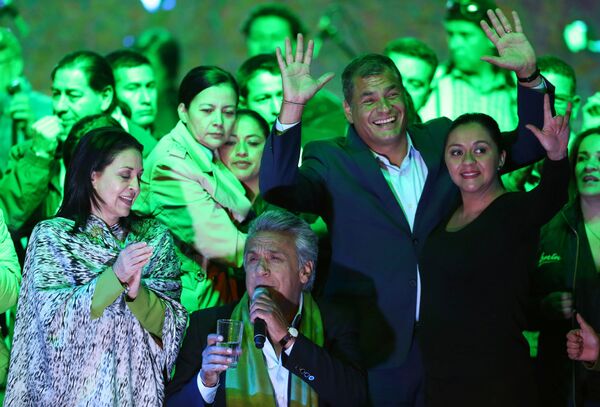
Slowly but surely, Moreno began chiselling away at Assange's already limited liberties at the embassy, imposing new terms of conduct for both the WikiLeaks founder and his visitors, leading to the outright cessation of his internet access in March 2018.
In July that year, Moreno confirmed he wanted Assange out of the embassy and had begun talks with British authorities to withdraw asylum- although he said he wished "for [Assange's] life not to be in danger".
On 16th October, representatives of the US House Committee on Foreign Affairs wrote an open letter to Moreno describing Assange as a dangerous criminal and making clear progress between the US and Ecuador in respect of economic cooperation and counternarcotics assistance, and the return of a USAID mission to Ecuador, depended on Assange being "handed over to the proper authorities".
Three days later, Assange launched legal action against the government of Ecuador, accusing it of violating his "fundamental rights and freedoms" — later that month, an Ecuadorian judge ruled against him.
On 15th November, it was revealed Assange had been charged in a sealed indictment — and the next month, Moreno reached an agreement to have Assange leave the embassy in what he called "near liberty", British authorities apparently having assured him Assange would be free to live in the UK without extradition after serving a maximum prison sentence of six months. Conversely, their formal offer merely stated Assange would not be extradited to a country with the death penalty.
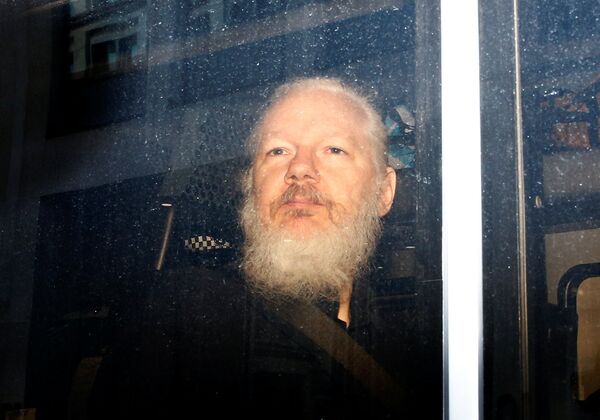
READ MORE: US Charges Assange With Helping Chelsea Manning Break Into Classified Computers
Within hours, the WikiLeaks founder appeared at Westminster Magistrates' Court, where he pleaded innocent to the charge of failing to surrender to an arrest warrant and skipping bail. He was found guilty, and faces a prison term of up to 12 months when he is sentenced at Crown Court later this month. Whether — if not when — he'll be extradited to the US is unclear.

